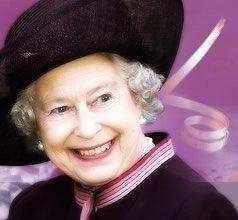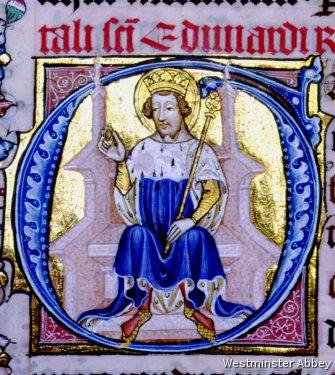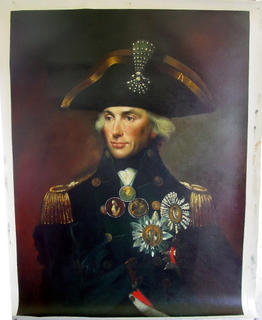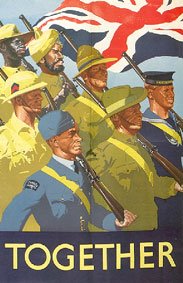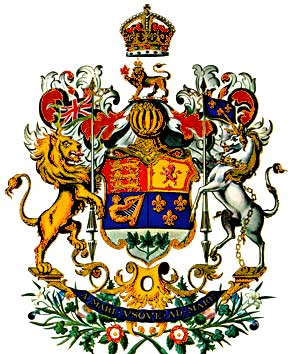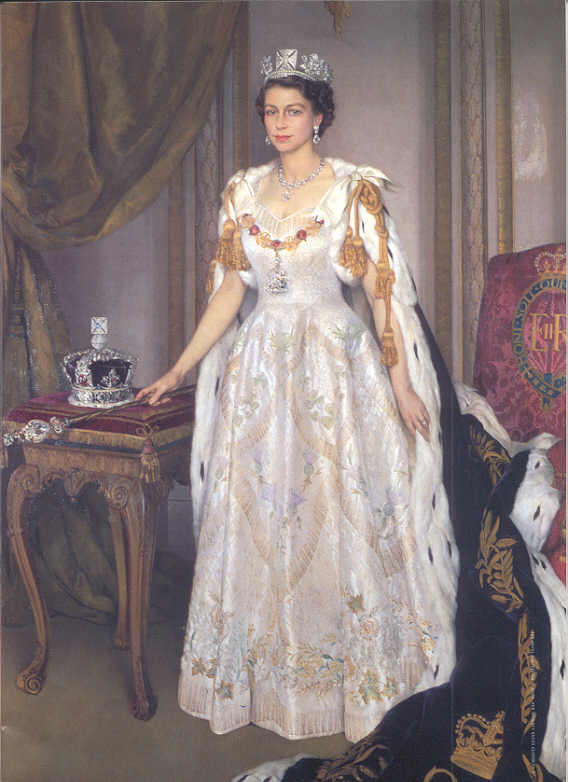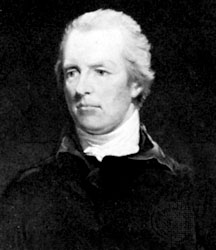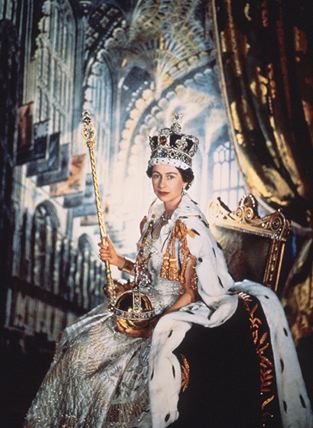[+] HONOURING OUR PATRON, SIR WINSTON CHURCHILL, VICTOR OF THE ENGLISH-SPEAKING PEOPLES
[+] HONOURING OUR QUEEN, ELIZABETH THE SECOND, ON THE 80TH YEAR OF HER BIRTH (1926 - 2006)
[+] HONOURING OUR KING, SAINT EDWARD THE CONFESSOR, ON THE 1000TH YEAR OF HIS BIRTH (1005 - 2005)
[+] HONOURING OUR HERO, LORD NELSON, ON THE BICENTENNIAL OF THE BATTLE OF TRAFALGAR (1805 - 2005)
[+] HONOURING OUR SONS, THE QUEEN'S COMMONWEALTH SOLDIERS KILLED IN THE 'WAR ON TERROR'
[+] HONOURING OUR VETS ON THE 150TH ANNIVERSARY OF THE VICTORIA CROSS (1856 - 2006)
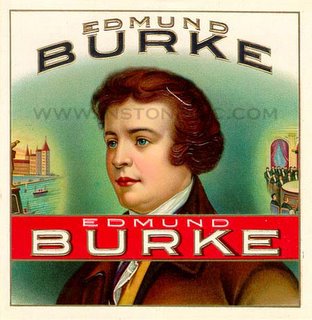 The Paris riots remind me of the philosopher professor and writer, Roger Scruton, and his highly impressionable essay, Why I became a conservative. This is a must read for all monarchists, traditionalists and conservatives alike, and The Radical Tory is right to call him “The Burke of our age”. Because like Burke, who wrote his greatest work in response to the French revolutionary uprisings in Paris of the late 18th century, Scruton began to formulate his own conservative philosophy in response to the Paris riots of 1968. Here are the three Scruton-on-Burke passages that I think have impressed upon me the most:
The Paris riots remind me of the philosopher professor and writer, Roger Scruton, and his highly impressionable essay, Why I became a conservative. This is a must read for all monarchists, traditionalists and conservatives alike, and The Radical Tory is right to call him “The Burke of our age”. Because like Burke, who wrote his greatest work in response to the French revolutionary uprisings in Paris of the late 18th century, Scruton began to formulate his own conservative philosophy in response to the Paris riots of 1968. Here are the three Scruton-on-Burke passages that I think have impressed upon me the most:Burke on Authority and Obedience
“Far from being the evil and obnoxious thing that my contemporaries held it to be, authority was, for Burke, the root of political order. Society, he argued, is not held together by the abstract rights of the citizen, as the French Revolutionaries supposed. It is held together by authority—by which is meant the right to obedience, rather than the mere power to compel it. And obedience, in its turn, is the prime virtue of political beings, the disposition which makes it possible to govern them, and without which societies crumble into “the dust and powder of individuality.” Those thoughts seemed as obvious to me as they were shocking to my contemporaries. In effect Burke was upholding the old view of man in society, as subject of a sovereign, against the new view of him, as citizen of a state. And what struck me vividly was that, in defending this old view, Burke demonstrated that it was a far more effective guarantee of the liberties of the individual than the new idea, which was founded in the promise of those very liberties, only abstractly, universally, and therefore unreally defined. Real freedom, concrete freedom, the freedom that can actually be defined, claimed, and granted, was not the opposite of obedience but its other side. The abstract, unreal freedom of the liberal intellect was really nothing more than childish disobedience, amplified into anarchy.”
Burke on Tradition and Prejudice
“Burke’s provocative defense [of tradition as a political virtue through] “prejudice” —by which he meant the set of beliefs and ideas that arise instinctively in social beings, and which reflect the root experiences of social life—was a revelation of something that until then I had entirely overlooked. Burke brought home to me that our most necessary beliefs may be both unjustified and unjustifiable from our own perspective, and that the attempt to justify them will lead merely to their loss. Replacing them with the abstract rational systems of the philosophers, we may think ourselves more rational and better equipped for life in the modern world. But in fact we are less well equipped, and our new beliefs are far less justified, for the very reason that they are justified by ourselves.”
Burke on the Social Trust
“In Burke’s eyes the self-righteous contempt for ancestors which characterized the Revolutionaries was also a disinheriting of the unborn. Rightly understood, he argued, society is a partnership among the dead, the living, and the unborn, and without what he called the “hereditary principle,” according to which rights could be inherited as well as acquired, both the dead and the unborn would be disenfranchized. Indeed, respect for the dead was, in Burke’s view, the only real safeguard that the unborn could obtain, in a world that gave all its privileges to the living. His preferred vision of society was not as a contract, in fact, but as a trust, with the living members as trustees of an inheritance that they must strive to enhance and pass on.”


